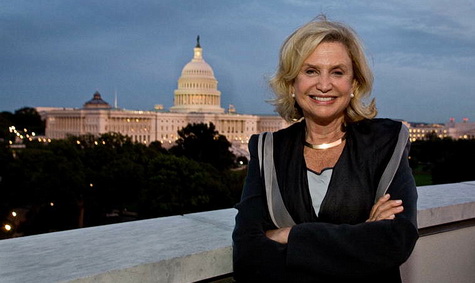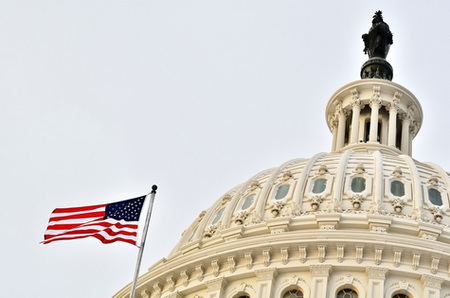
A multi-sector coalition including real estate, tourism, technology, manufacturing, health care, and energy sector groups – led by the U.S. Chamber of Commerce – called upon Congress in a May 27 letter to enact temporary liability protections for businesses struggling to reopen and operate safely during the COVID-19 pandemic.
- The letter explains that American businesses face risks of frivolous litigation that will impede the nation’s path to economic recovery. “Absent a targeted safe harbor for [businesses] that work to follow applicable guidelines, the fear and uncertainty from boundless liability threatens to impede our country’s social and economic recovery,” the groups explain.
- The Chamber-led coalition emphasized that “recourse for those harmed by truly bad actors who engage in egregious misconduct” must be preserved. Reasonable and temporary liability protections should also be offered for:
(1) businesses, nonprofit organizations, and educational institutions that work to follow applicable public health guidelines against COVID-19 exposure claims;
(2) healthcare workers and facilities providing critical COVID-19-related care and services;
(3) manufacturers, donors, distributors, and users of vaccines, therapeutics, medical devices, as well as PPE and other supplies (such as hand sanitizer and cleaning supplies) that are critical to the COVID-19 response; and
(4) public companies targeted by unfair and opportunistic COVID-19-related securities lawsuit
- Among the more than 200 signatories to the letter are The Real Estate Roundtable, American Hotel & Lodging Association, International Council of Shopping Centers, National Apartment Association, National Association of REALTORS®, and the National Multifamily Housing Council.
- Additionally, Building Owners and Managers Association (BOMA) International wrote to congressional leaders on May 27, urging them to consider business protections developed in response to prior emergencies like 9/11 as a guide for responding to Covid-19-related liability issues. (BOMA letter on business liability)
- “A tailored, specific legal safe harbor program for those in the commercial real estate sector, who are following public health rules, directives, and guidelines, making plans, and implementing protective measures, will support ongoing recovery efforts,” BOMA’s letter explains.
- Senate Majority Leader Mitch McConnell (R-KY) and House Minority Leader Kevin McCarthy (R-CA) said in a joint statement early this month that any future Covid-19 relief legislation must include liability protections for employers and businesses. (See Roundtable Weekly, May 1)
- Senator John Cornyn (R-TX) emphasized the GOP’s position on May 18, stating on the Senate floor that “Leader McConnell and I … are working on a proposal that would put common sense reforms in place and protect those acting in good faith from being sued into oblivion.” (Cornyn statement). Potential employer immunity and anticipated litigation related to Covid-19 were the focus of a May 12 Senate Judiciary Committee hearing. (Roundtable Weekly, May 15).
Several states have implemented or are considering pandemic-related liability protections that could provide a direction for federal legislation. Utah, for example, provides law suit immunity to businesses except in cases of reckless or intentional misconduct. (Salt Lake Tribune, May 4)
Roundtable Members Continue to Drive the “Re-Entry Discussion”
Roundtable Immediate Past Chair Bill Rudin (Co-Chairman & CEO, Rudin Management Company, Inc.) today joined CNBC for a conversation about the path forward for re-populating office spaces in New York and cities nationwide.
- Citing recent industry surveys, Rudin said, “Over 75% of the employees want to come back to work. They want to be with their co-workers and interact and have that cohesiveness that is missing right now.” He added, “We’re optimistic that when we get through this the office building will still be a central hub for creativity and entrepreneurship.” (CNBC Squawkbox, Twitter, May 29)
- In recent weeks, Roundtable members have shared their perspectives and experiences with a number of media platforms regarding workplace re-entry strategies and technologies. (Roundtable Weekly, May 15) Such questions are complicated by an evolving patchwork of state-level laws and guidance. (New York Times Interactive Map, “See How All 50 States are Re-Opening” )
- The Centers for Disease Control and Prevention (CDC) has issued recommendations for American employers preparing to reopen their offices as states begin to lift their lock-down orders. [CDC, Interim Guidance for Businesses and Employers Responding to Coronavirus Disease 2019, (May 2020] CDC recommends various steps such as checking ventilation systems, increasing outdoor air circulation, ensuring employees maintain six feet of separation through physical barriers, staggered worker shifts, enhanced clean and disinfecting practices, and conducting employee health checks and screenings.
Business liability and building re-entry are crucial issues affecting commercial real estate operations in the Covid-19 era. They will be discussed during The Roundtable’s virtual Annual Meeting on June 11-12, which will include remote events for both business and policy advisory committee meetings.
# # #







